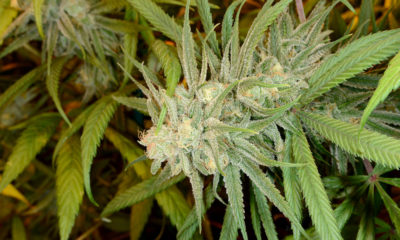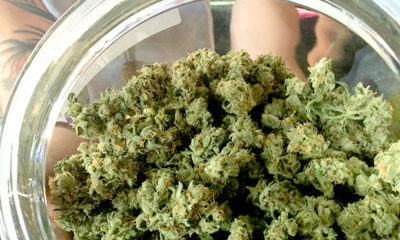
Medical
Study Finds Cannabis Treatments for Autism Improved Patients’ Quality of Life
A small study shows patients with autism taking customized cannabis treatments improved dramatically.
A new study has determined that customized cannabis treatments can improve the quality of life for patients with autism spectrum disorder. The study of 20 patients with autism found that participants who took a customized daily regimen of full-spectrum cannabis extracts showed a significant improvement in their symptoms resulting in an improvement in the quality of life for both the patients and their families. The small study, which was conducted by Brazilian researchers monitored by a University of Brasília ethics committee, was published recently in the peer-reviewed journal Frontiers in Psychiatry.
Autism spectrum disorder (ASD) is a neurological and developmental disorder that affects how people communicate, learn, interact with others and behave, according to information from the National Institute of Mental Health. Symptoms can vary widely and generally appear during the first two years of a child’s life and may include difficulty with communication and interactions with others, limited interests and repetitive behaviors. The severity of symptoms can also vary and can commonly affect the ability to function in school, work and other areas of life.
According to data from the Centers for Disease Control and Prevention (CDC), about one in 36 children in the US has been diagnosed with ASD. The condition is reported to occur in all racial, ethnic and socioeconomic groups and is nearly four times more common among boys than girls. The CDC also estimates that 2.21% of adults (about 1 in 45 people) in the country have ASD, a total of approximately 5.4 million people aged 18 and older.
A definitive cause of ASD hasn’t been established. Because early intervention can often improve outcomes, the CDC recommends early screening for autism spectrum disorder. Although there are no medications that treat the core symptoms of the condition, some medications can help manage common symptoms such as irritability, aggression, repetitive behavior, hyperactivity, attention problems, anxiety and depression. Additionally, therapeutic programs can address the range of social, language and behavioral difficulties associated with ASD. Some programs focus on reducing problem behaviors and teaching new skills, while others focus on highly structured educational programs. Family therapy and other therapies may also be used.
“Autism Spectrum Disorders may significantly impact the well-being of patients and their families. The therapeutic use of cannabis for ASD has gained interest due to its promising results and low side effects, but a consensus on treatment guidelines is lacking,” the study’s authors wrote in an abstract of the research. “In this study, we conducted a retrospective analysis of 20 patients with autistic symptoms who were treated with full-spectrum cannabis extracts (FCEs) in a response-based, individually-tailored dosage regimen.”
Research Focused on Customized Cannabis Treatments
To conduct the study, the researchers determined the optimum dose of a full-spectrum cannabis extract for each patient through a process known as titration. Patients were given either CBD oil, THC oil or a combination of the two. Participants started with a small dose of CBD oil, with researchers monitoring the patient’s symptoms and adjusting the treatment to achieve the best results. Some participants saw improved results with the slow addition of THC oil to the regimen to achieve a customized ratio of CBD to THC, although most participants completed the study without consuming THC. Among participants who used a mix of the two cannabinoids, the ratio of CBD:THC formulations ranged from 3:1 to 49:1.
After researchers determined the best formulation and dose for each participant, the study subjects maintained the cannabis treatment regimen for at least three months, with many participants continuing treatment for longer than six months. Following three months of the customized treatment, the participants’ caregivers completed a detailed survey on the effect the cannabis had on the patient and their symptoms of ASD. The results of the survey showed that most caregivers believed that the cannabis treatment generally improved the patient’s symptoms and quality of life. Caregivers reported improvements in symptoms, including seizures (84%), emotional meltdowns (76%), discomfort in noisy or crowded places (72%), aggression toward others (67%), eating non-foods (63%), excessive appetite (62%) and screaming and making random sounds (54%).
The cannabis treatments also appeared to result in improvements in participants’ verbal communication skills, with 85% of caregivers reporting their family member was more receptive to direct verbal communication. Additionally, 75% of caregivers reported improvements in eye contact and attention to conversation, while verbal communication improved for half of the study participants. Intellectual and cognitive performance improved in 57% of patients, a finding that the authors noted was significant because other medications used to treat ASD have not been shown to improve this co-morbid condition.
A few of the study participants saw no change or a worsening of some symptoms, such as attention to verbal communication, maintaining eye contact and aggression. The small sample size was cited as a limitation of the study, as were other factors, including the lack of a control group. But overall, the researchers were encouraged by the results and recommended further study of cannabis as a treatment for ASD.


















